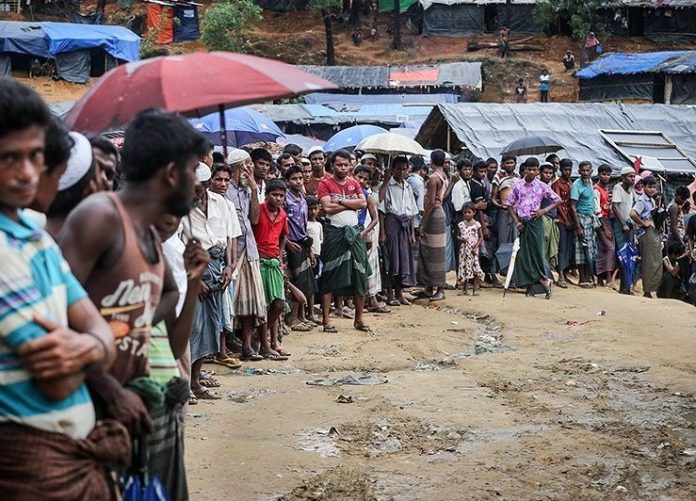New Delhi, March 20: The Union government has stated before the Supreme Court that illegal Rohingya Muslim migrants cannot claim that they should be allowed to reside and settle in India as a fulfilment of their fundamental rights. In an affidavit submitted to the apex court, the government highlighted that the judiciary cannot intervene in the legislative and policy domains of Parliament and the executive branch to create a separate category for granting refugee status to those illegally entering India.
Quoting several judgments of the Supreme Court, the government emphasized that foreigners only enjoy the right to life and liberty under Article 21 of the Constitution and do not have the right to reside and settle in the country, a privilege reserved solely for Indian citizens.
Furthermore, the affidavit revealed that India does not recognize UNHCR refugee cards, which some Rohingya Muslims have obtained to claim refugee status. The government underscored that India is already facing significant challenges due to large-scale illegal migration from neighboring Bangladesh, which has led to demographic changes in border states like Assam and West Bengal.
Highlighting the serious security implications of the continued illegal migration of Rohingyas into India, the government stated that there are credible reports of many Rohingya individuals engaging in activities such as obtaining fake Indian identity documents, human trafficking, and subversive activities across the country, posing a threat to internal and national security.
Responding to a plea by petitioner Priyali Sur for the release of detained Rohingya individuals, the government reiterated that those entering the country illegally would be dealt with in accordance with the provisions of the Foreigners Act. It clarified that India, not being a signatory to the 1951 Refugee Convention and its Protocol, would handle the Rohingya issue within its own domestic legal framework.
The government’s assertion regarding Muslim Rohingya should be seen in the context of its recent efforts to steamroll the Citizenship (Amendment) Act, 2019 (CAA), declaring that any Hindu, Sikh, Buddhist, Jain, Parsi or Christian from Pakistan, Bangladesh and Afghanistan, who entered India before December 31, 2014, is eligible for Indian citizenship and would not be asked for their passport or an Indian visa. By excluding Muslims from these countries for seeking Indian citizenship under CAA and closing the doors to the Muslim Rohingya, the government has exposed itself to allegations of being biased and maintaining discrimination against Muslims.




